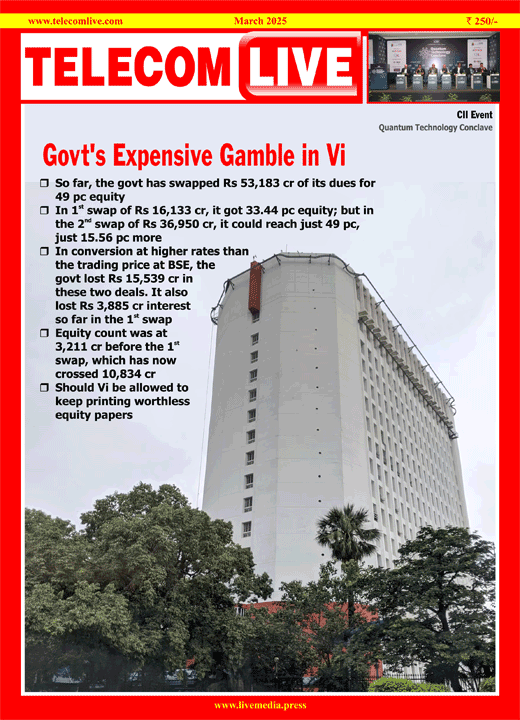Foxconn, Nvidia deepen AI partnership for smart cities, smart EVs; to set up 100MW data center
Apple iPhone manufacturer, Hon Hai Technology Group (Foxconn), and artificial intelligence (AI) giant Nvidia have deepened their partnership to tap into opportunities in the smart cities, smart factories, and smart electric vehicles (EV) sectors.
Foxconn Chairman & CEO, Young Liu, said the company has developed its own AI foundational model, FoxBrain, which it will provide to customers in various industries, adding that Japanese Mitsubishi will be among its first automobile original equipment manufacturer (OEM) customers.
The FoxBrain is built on open-source models, including the Meta Llama-3 and -4, and is hosted at Foxconn’s Kaohsiung data center, which uses Nvidia H100, GB200, and GB300 AI chips. Foxconn’s first-generation model specialises in reasoning with agentic workflows for domain-specific applications.
‘Mitsubishi will be the first car OEM to utilise our reference models. Customers can use our AI reference models to eliminate about 80% of their work, and the remaining work can be invested into making new EVs,’ Liu said at the Computex 2025 event, being held in Taiwan’s capital city.
Recently, the EV unit of Foxconn, Foxtron, agreed in principle to develop and supply an EV model to Mitsubishi Motors. The electric car will be introduced in the Oceania region (Australia and New Zealand) in the second half of 2026, and is part of the Japanese automaker’s product plan announced in 2024, extending through 2030.
The Foxconn chief executive’s comments underline the growing significance of generative artificial intelligence (GenAI) across industries, including automobile, for efficiency gains and cost savings. Lately, the Taiwanese firm has also been expanding into new segments ranging from EVs to semiconductors and servers.
Foxconn is building a data center of 100MW capacity with Nvidia software and hardware in Taiwan to enable the rapidly growing number of AI applications that demand huge computing power.
‘With the smart manufacturing, smart EV, and smart city, we need an AI factory to power these three smart platforms,’ Liu said, adding that the data center will be constructed in phases, initially with 20MW capacity.
‘Within the last 18 months, we have gone through all this exercise to come out with the current status. Together, we work with Nvidia and other partners to create whole ecosystems, and hopefully, with all these ecosystems, we can become the leader in AI manufacturing,’ he said.
Jensen Huang, CEO, Nvidia, said Taiwan plays a key role in the global technology ecosystem. ‘But Taiwan isn’t just building AI for the world, Nvidia is helping build AI for Taiwan,’ he said.
Huang said that Foxconn is using Nvidia Metropolis for smart cities and factories, Nvidia Isaac for robotics, Nvidia Drive for autonomous vehicles, and Nvidia Omniverse as the digital twin operating system.
‘We announced that we are going to build an AI factory for you to use, for me to use, and for Taiwan and the entire ecosystem to use. Foxconn is going to be a world-class regional AI cloud provider,’ Huang said.
Both companies are deepening their longstanding partnership and are working with the Taiwan government to build an AI factory supercomputer that will deliver state-of-the-art Nvidia Blackwell infrastructure to researchers, startups, and industries, including Nvidia’s primary chip manufacturer, Taiwan Semiconductor Manufacturing Co. (TSMC).
As per media reports, Nvidia is going to open a new office, Constellation, in Taipei’s Beitou district, signalling its ambition to diversify beyond its home country USA. The company has recently committed to investing $500 billion over the next four years for US AI infrastructure projects, and has forged partnerships with TSMC, Foxconn, and Wistron.
On the back of the AI boom, Nvidia overtook Microsoft for one day in June 2024 as the world’s most valuable publicly traded company with a market capitalisation of nearly $3.3 trillion, but has come under pressure of late due to geopolitical tensions and tariff wars.
Notably, most iPhones made by Foxconn for Apple are assembled in China. The contract manufacturer is also building a large manufacturing facility in Mexico to produce AI servers for Nvidia.



